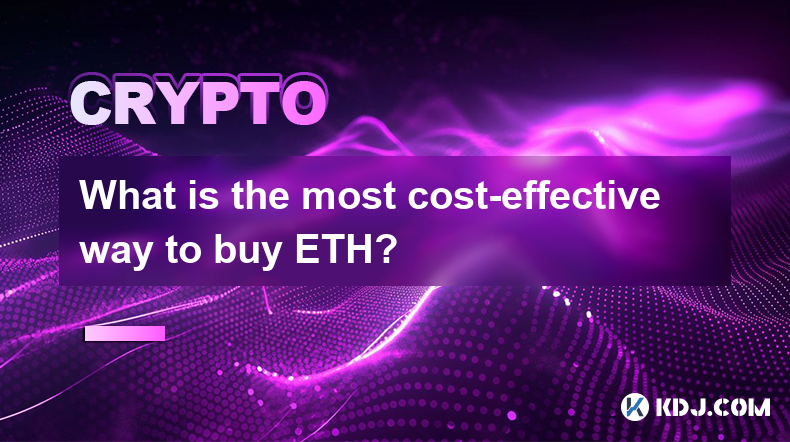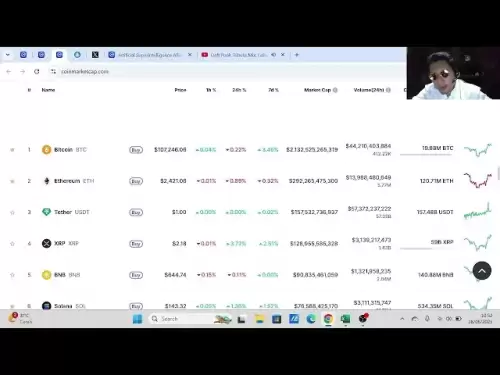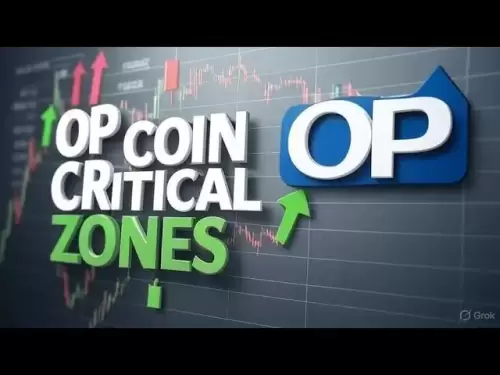-
 Bitcoin
Bitcoin $107,461.2530
0.65% -
 Ethereum
Ethereum $2,425.6945
-0.64% -
 Tether USDt
Tether USDt $1.0003
-0.01% -
 XRP
XRP $2.1844
4.49% -
 BNB
BNB $646.3777
0.36% -
 Solana
Solana $146.6972
3.90% -
 USDC
USDC $1.0000
0.00% -
 TRON
TRON $0.2744
1.17% -
 Dogecoin
Dogecoin $0.1631
1.28% -
 Cardano
Cardano $0.5609
1.22% -
 Hyperliquid
Hyperliquid $37.0726
2.08% -
 Bitcoin Cash
Bitcoin Cash $497.3222
-0.12% -
 Sui
Sui $2.7220
3.19% -
 Chainlink
Chainlink $13.1487
0.79% -
 UNUS SED LEO
UNUS SED LEO $9.0787
0.68% -
 Avalanche
Avalanche $17.6542
1.11% -
 Stellar
Stellar $0.2377
1.49% -
 Toncoin
Toncoin $2.8426
0.81% -
 Shiba Inu
Shiba Inu $0.0...01140
1.72% -
 Litecoin
Litecoin $85.2565
0.62% -
 Hedera
Hedera $0.1475
2.69% -
 Monero
Monero $314.1893
2.28% -
 Bitget Token
Bitget Token $4.6752
0.90% -
 Dai
Dai $1.0001
0.02% -
 Polkadot
Polkadot $3.3425
1.28% -
 Ethena USDe
Ethena USDe $1.0001
0.02% -
 Uniswap
Uniswap $6.9500
1.23% -
 Pi
Pi $0.5304
-3.13% -
 Pepe
Pepe $0.0...09311
0.91% -
 Aave
Aave $254.6674
-1.33%
What is the most cost-effective way to buy ETH?
To find the cheapest route to buying ETH, compare exchange fees, time purchases during low network activity, and consider using Layer-2 networks for lower transaction costs.
Mar 31, 2025 at 02:00 am

Finding the Cheapest Route to Ethereum
The question of the most cost-effective way to buy ETH is multifaceted, depending on several factors including your location, the amount you're buying, and your comfort level with different platforms. There isn't a single "best" method, but understanding the options and their associated fees will help you make an informed decision.
One of the primary factors influencing cost is the exchange fees. Different cryptocurrency exchanges charge varying fees for trading. These fees can be percentage-based (a percentage of the transaction value) or flat fees (a fixed amount per transaction). It's crucial to compare fees across multiple exchanges before committing to a purchase. Some exchanges offer lower fees for larger trades, making them more cost-effective for significant investments.
Another significant cost consideration is the network fee, also known as the gas fee, for Ethereum transactions. This fee is paid to miners to process and validate your transaction on the Ethereum blockchain. Gas fees fluctuate wildly depending on network congestion. High demand leads to higher gas fees, while low demand results in lower fees. Timing your purchase strategically can help mitigate this cost. Consider purchasing during periods of lower network activity.
The method of payment also affects the overall cost. Using a credit or debit card is often convenient but usually involves higher fees compared to bank transfers or other payment methods. Some exchanges offer discounts or reduced fees for specific payment methods. Carefully review the payment options and associated charges before proceeding.
Exploring Different Purchase Avenues
Several platforms facilitate ETH purchases, each with its own fee structure and advantages.
Centralized Exchanges (CEXs): These are platforms like Coinbase, Binance, Kraken, and Gemini. They offer a user-friendly interface and a wide range of cryptocurrencies. However, they typically charge higher fees than decentralized exchanges (DEXs). Their security is generally high, but they are subject to regulatory oversight and potential hacking.
Decentralized Exchanges (DEXs): DEXs like Uniswap and SushiSwap allow peer-to-peer trading without intermediaries. While offering potentially lower fees, DEXs can be more complex to use, especially for beginners. They also often require a higher level of technical understanding. Security risks are different, as you are directly interacting with smart contracts.
Peer-to-Peer (P2P) Trading Platforms: These platforms connect buyers and sellers directly, often bypassing exchange fees. However, they carry a higher risk of scams if not used cautiously. Careful vetting of counterparties is essential.
Buying directly from individuals: This is the riskiest option, as it lacks the security and regulatory oversight of exchanges. It's crucial to only deal with trusted individuals and employ secure payment methods.
Minimizing Costs: Practical Strategies
To minimize costs when buying ETH, consider the following:
Compare exchange fees: Before making a purchase, diligently compare the fees charged by various exchanges. Look beyond the advertised fees and consider any hidden costs or volume discounts.
Time your purchases: Monitor network congestion and gas fees. Buying during periods of low network activity can significantly reduce your gas fees.
Utilize less congested networks: If possible, consider using Layer-2 scaling solutions like Polygon or Optimism, which often have significantly lower transaction fees than the main Ethereum network. This requires transferring your ETH to the Layer-2 network, but the savings can be substantial.
Use a payment method with lower fees: Opt for bank transfers or other low-fee payment methods instead of credit or debit cards whenever possible.
Consider bulk purchases: Some exchanges offer discounted fees for larger transactions. If you plan to buy a substantial amount of ETH, this could save you a considerable sum.
Understanding the Risks Involved
It's crucial to remember that the cryptocurrency market is inherently volatile. The price of ETH can fluctuate significantly, impacting the overall cost of your purchase. Conduct thorough research and understand the risks involved before investing any money. Only invest what you can afford to lose. Security is paramount; choose reputable exchanges and adopt robust security practices to protect your funds.
Frequently Asked Questions
Q: Are there any free ways to buy ETH?
A: No, there are no completely free ways to buy ETH. All methods involve fees, whether exchange fees, network fees, or payment processing fees. However, you can minimize these costs by employing the strategies mentioned above.
Q: Which exchange has the lowest fees?
A: The exchange with the lowest fees can vary depending on your location, the amount you're buying, and the payment method used. It's essential to compare fees across multiple exchanges before making a decision.
Q: How can I avoid high gas fees?
A: Monitor network congestion and gas fees before initiating a transaction. Consider buying during periods of low activity, or using Layer-2 scaling solutions.
Q: Is it safer to buy ETH from a CEX or DEX?
A: Both CEXs and DEXs have their own security risks. CEXs are centralized and vulnerable to hacking, while DEXs involve smart contract risks. Choosing a reputable platform and practicing good security habits is crucial regardless of the platform.
Q: What is the best time to buy ETH?
A: There's no single "best" time to buy ETH. The cryptocurrency market is highly volatile, and predicting price movements is challenging. Consider a long-term investment strategy and dollar-cost averaging to mitigate risk.
Disclaimer:info@kdj.com
The information provided is not trading advice. kdj.com does not assume any responsibility for any investments made based on the information provided in this article. Cryptocurrencies are highly volatile and it is highly recommended that you invest with caution after thorough research!
If you believe that the content used on this website infringes your copyright, please contact us immediately (info@kdj.com) and we will delete it promptly.
- Undervalued Crypto Gems: Time to Buy Now?
- 2025-06-28 14:30:12
- Stablecoins, Risk Reward, and Regulation: Navigating the Crypto Minefield
- 2025-06-28 14:30:12
- Binance Coin (BNB): Whale Moves, Exchange Activity, and the Path to $900?
- 2025-06-28 14:50:13
- XRP Lawsuit: SEC Appeal Looms, Lawyer Warns – Is It Really Over?
- 2025-06-28 15:10:16
- Bitcoin's Long-Term Holders: An Accumulation Signal You Can't Ignore
- 2025-06-28 15:30:12
- Bitcoin, Elections, and Voters: A New Political Force?
- 2025-06-28 15:30:12
Related knowledge

How to customize USDT TRC20 mining fees? Flexible adjustment tutorial
Jun 13,2025 at 01:42am
Understanding USDT TRC20 Mining FeesMining fees on the TRON (TRC20) network are essential for processing transactions. Unlike Bitcoin or Ethereum, where miners directly validate transactions, TRON uses a delegated proof-of-stake (DPoS) mechanism. However, users still need to pay bandwidth and energy fees, which are collectively referred to as 'mining fe...

USDT TRC20 transaction is stuck? Solution summary
Jun 14,2025 at 11:15pm
Understanding USDT TRC20 TransactionsWhen users mention that a USDT TRC20 transaction is stuck, they typically refer to a situation where the transfer of Tether (USDT) on the TRON blockchain has not been confirmed for an extended period. This issue may arise due to various reasons such as network congestion, insufficient transaction fees, or wallet-rela...

How to cancel USDT TRC20 unconfirmed transactions? Operation guide
Jun 13,2025 at 11:01pm
Understanding USDT TRC20 Unconfirmed TransactionsWhen dealing with USDT TRC20 transactions, it’s crucial to understand what an unconfirmed transaction means. An unconfirmed transaction is one that has been broadcasted to the blockchain network but hasn’t yet been included in a block. This typically occurs due to low transaction fees or network congestio...

How to check USDT TRC20 balance? Introduction to multiple query methods
Jun 21,2025 at 02:42am
Understanding USDT TRC20 and Its ImportanceUSDT (Tether) is one of the most widely used stablecoins in the cryptocurrency market. It exists on multiple blockchain networks, including TRC20, which operates on the Tron (TRX) network. Checking your USDT TRC20 balance accurately is crucial for users who hold or transact with this asset. Whether you're sendi...

What to do if USDT TRC20 transfers are congested? Speed up trading skills
Jun 13,2025 at 09:56am
Understanding USDT TRC20 Transfer CongestionWhen transferring USDT TRC20, users may occasionally experience delays or congestion. This typically occurs due to network overload on the TRON blockchain, which hosts the TRC20 version of Tether. Unlike the ERC20 variant (which runs on Ethereum), TRC20 transactions are generally faster and cheaper, but during...

The relationship between USDT TRC20 and TRON chain: technical background analysis
Jun 12,2025 at 01:28pm
What is USDT TRC20?USDT TRC20 refers to the Tether (USDT) token issued on the TRON blockchain using the TRC-20 standard. Unlike the more commonly known ERC-20 version of USDT (which runs on Ethereum), the TRC-20 variant leverages the TRON network's infrastructure for faster and cheaper transactions. The emergence of this version came as part of Tether’s...

How to customize USDT TRC20 mining fees? Flexible adjustment tutorial
Jun 13,2025 at 01:42am
Understanding USDT TRC20 Mining FeesMining fees on the TRON (TRC20) network are essential for processing transactions. Unlike Bitcoin or Ethereum, where miners directly validate transactions, TRON uses a delegated proof-of-stake (DPoS) mechanism. However, users still need to pay bandwidth and energy fees, which are collectively referred to as 'mining fe...

USDT TRC20 transaction is stuck? Solution summary
Jun 14,2025 at 11:15pm
Understanding USDT TRC20 TransactionsWhen users mention that a USDT TRC20 transaction is stuck, they typically refer to a situation where the transfer of Tether (USDT) on the TRON blockchain has not been confirmed for an extended period. This issue may arise due to various reasons such as network congestion, insufficient transaction fees, or wallet-rela...

How to cancel USDT TRC20 unconfirmed transactions? Operation guide
Jun 13,2025 at 11:01pm
Understanding USDT TRC20 Unconfirmed TransactionsWhen dealing with USDT TRC20 transactions, it’s crucial to understand what an unconfirmed transaction means. An unconfirmed transaction is one that has been broadcasted to the blockchain network but hasn’t yet been included in a block. This typically occurs due to low transaction fees or network congestio...

How to check USDT TRC20 balance? Introduction to multiple query methods
Jun 21,2025 at 02:42am
Understanding USDT TRC20 and Its ImportanceUSDT (Tether) is one of the most widely used stablecoins in the cryptocurrency market. It exists on multiple blockchain networks, including TRC20, which operates on the Tron (TRX) network. Checking your USDT TRC20 balance accurately is crucial for users who hold or transact with this asset. Whether you're sendi...

What to do if USDT TRC20 transfers are congested? Speed up trading skills
Jun 13,2025 at 09:56am
Understanding USDT TRC20 Transfer CongestionWhen transferring USDT TRC20, users may occasionally experience delays or congestion. This typically occurs due to network overload on the TRON blockchain, which hosts the TRC20 version of Tether. Unlike the ERC20 variant (which runs on Ethereum), TRC20 transactions are generally faster and cheaper, but during...

The relationship between USDT TRC20 and TRON chain: technical background analysis
Jun 12,2025 at 01:28pm
What is USDT TRC20?USDT TRC20 refers to the Tether (USDT) token issued on the TRON blockchain using the TRC-20 standard. Unlike the more commonly known ERC-20 version of USDT (which runs on Ethereum), the TRC-20 variant leverages the TRON network's infrastructure for faster and cheaper transactions. The emergence of this version came as part of Tether’s...
See all articles
























































































